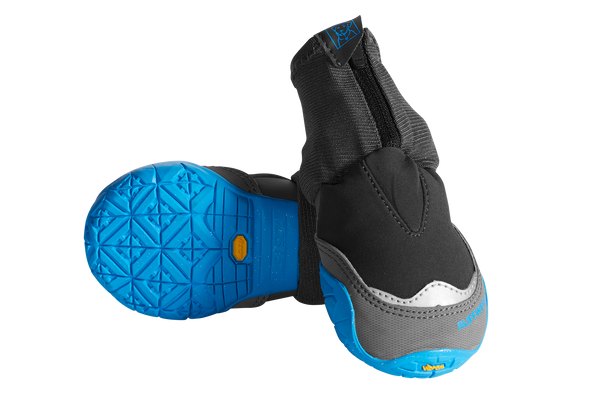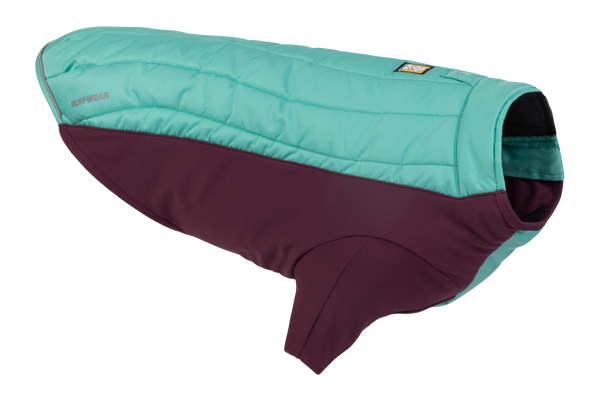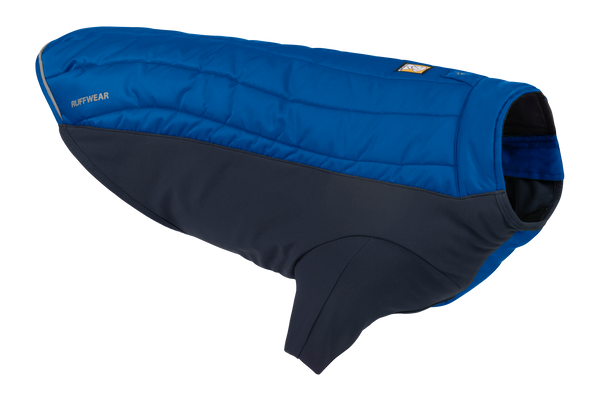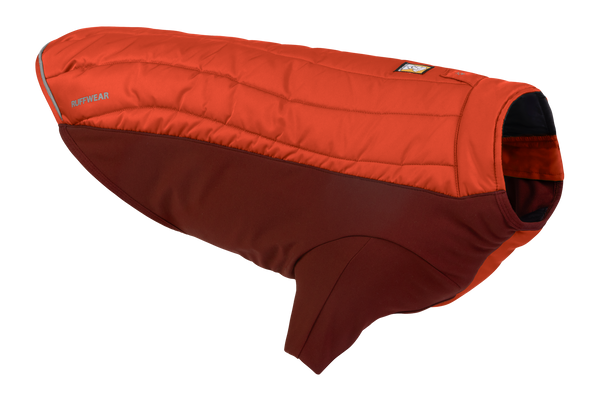Made for the Snow: Winter Backpacking With Dogs
Despite coming from Georgia and Alabama, my wife Marie and I feel like we were made for the snow. Sure, it can be extremely cold sometimes, and winter backpacking offers far less daylight hours, but snow transforms a landscape into something out of a fairytale.
Even at night, the smooth white forms of covered tree, rock, and mountain offer a warm, sparkling glow to the dark unknown. The muffled sound of a snow patch falling from a tree lands with a sound like a blanket tossed on a bed. The air is filled with stillness. Life is there, but far more subdued. You’re filled with the essence of hygge when you climb into your warm bag and sip on a fresh pot of coco. Add your dog into the mix? Well, that makes the experience all the more magical.
Winter backpacking with your dog is a spectacularly rewarding experience. It takes some practice and preparation, but it’s completely doable with the right gear and knowledge. So if you’re thinking about embarking on a winter camping adventure out in the backcountry with your dog, take it from me, Marie, and our pup Loba — it's certainly worth a try.

Our Backpacking Buddy Loba
Marie and I found sweet Loba at the Eagle County Animal Shelter here in Colorado. When we got her, she was 10 months old and had been given up three different times already. Following the shelter, we were her fifth and forever home. She’s a malamute-husky mix (a musky). When we walk her out in the Coloradan winter, we see it — she was made for the snow. She swims, dives, and plunges her head deep into snowbanks. She gobbles up mouthfuls of the stuff. Sometimes, she does this cute thing where she sticks her nose in and you can hear her snorting and sniffing at some unseen scent deep below the surface. We love her, truly, and she’s enriched our lives.

Loba has also changed the dynamic of winter backpacking quite a bit for us, but we wouldn’t have it any other way. Marie and I are professional thru-hikers outside of our normal careers, so we were able to hike for long periods of time on our feet and in a variety of terrains and weather conditions before we welcomed Loba into the family. Once we started bringing Loba along, we had a lot more to prepare for.
Preparing for the Adventure
Before you lace up your boots and hit the trail, there are a few things you’ll want to do when prepping for winter backpacking in the snow:
- Know your terrain and be avalanche aware. A great resource to learn avalanche 101 information is “Know Before You Go”.
- Look up what “postholing” is and anticipate it in snow deeper than about 2’.
- You will move slower in the snow: 1-2 miles an hour in boots/snowshoes. Plan accordingly.
- Look up temperatures and storm information before you head out to know what gear to take. It’s toasty when you’re moving, but when you stop…not so much.
- Have a warm sleeping bag and an appropriate 3-4 season tent. Many bags or quilts come with comfort and survivability ratings. We strive to keep our “comfort” temperature rating at least 10-20 F below what the lowest temperatures will be.
- Have water sources in the winter, as well as treatment.
It’s also important to prepare your pup. Make sure they’re comfortable with their gear and are accustomed to whatever sleeping situation they’ll be in. It took us a few days of having our 4-season tent pitched in the living room for Loba to get used to it. We trimmed her nails so she didn’t rip through the floor and tried to lay down Tyvek where she’d sleep, but she wouldn’t have it. When the time came to pitch the tent on our first overnight winter backpack excursion with her, we looped her leash around a tree to hold her until we could at least pitch the main body. She howled, barked, and yipped. But, despite refusing the Tyvek and needing my foam sleeping pad instead, she slept at our feet the entire night without a bark, nestled in her small corner and completely happy.
That first night she woke up a handful of times. She’d quietly walk up to where our heads were, make sure we were okay, and walk right back down to her little corner to sleep. Now, she’s learned to recognize the rise and fall of our breathing, so she stays in her corner until morning. When morning comes, she lays right between Marie and me — our very own fur-covered heat box.
Loba in Action

Uphills and flat sections of snowy trail are wonderful with Loba. She actually makes climbs easier. But downhills can be intimidating, especially for Marie. Loba is strong, very strong, for her small stature (she’s steady at 50 lbs). Downhill pulling with snowshoes makes you feel a bit helpless at times. With spikes, it’s a bit more doable. Either way, we really have to focus, so be mindful of your dog’s pulling tendencies before you venture out.
On our backpacking trips, Loba carries her Palisades™ Pack with some of her food, a bowl, water, her Highlands™ Dog Pad (which fits perfectly into the pack), and other necessities while we carry the rest. After long days and many miles logged, Loba sleeps soundly on her gray pad in her cozy corner.

No matter where our backpacking adventures have taken us, I am always exceptionally glad we knew what we were doing before we ever added our sweet girl into the mix. I am grateful we accustomed her to all her gear and made sure she had the endurance to comfortably join us out in the chilly wilderness.
For us, while winter backpacking has had its ups and downs, we thrive in it. The road hasn’t always been straight, and the trail has kicked us hard quite a few times, but the payoff has always been worth it. With Loba in the picture, we are all together now: our unit, our pack. Our experience has been enriched. We were all made for the snow.















